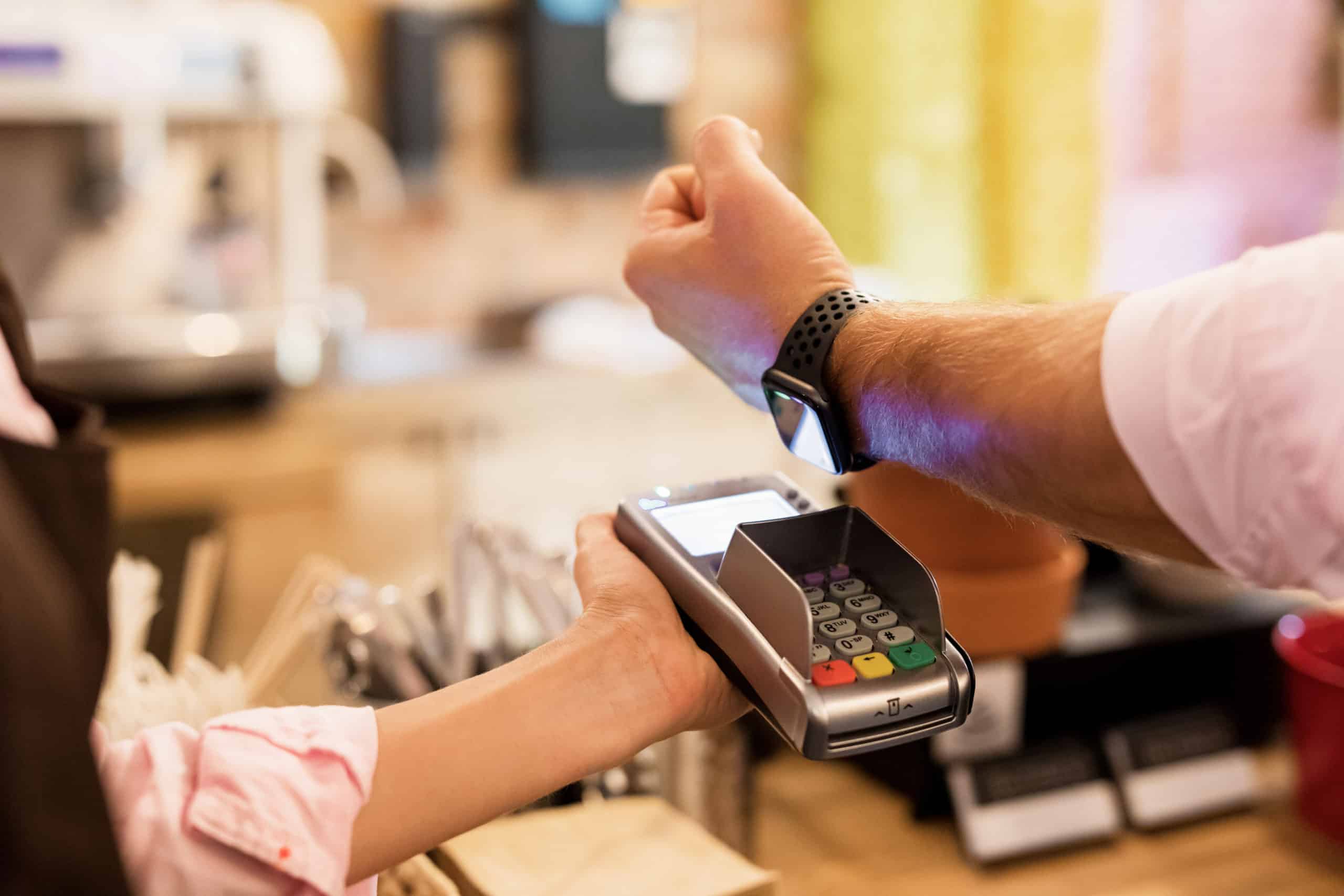Estimated reading time: 5 minutes
Apple Pay’s platform was first introduced in 2014 with the release of the iPhone 6. Since then, the platform has grown to more than 65 million people. When not accounting for auto sales, 51% of all merchants accept Apple Pay.
The main question from a user or retailer perspective remains the same: is Apply Pay safe?
Apple states that the platform was designed to be:
- Secure
- Private
Apple aims to design a more secure way to accept or pay for transactions with a platform that mixes hardware and software to provide a highly secure platform.
Is Apple Pay Safe? Yes, But You Need to Use It Right
When you pay with or accept Apple Pay, you’re protected by numerous layers of security that work to prevent credit card theft. Payments are made without a physical card. Instead, the mobile wallet uses what’s known as near-field communication technology to exchange data during the transaction.
The technology transmits information and verifies identity with one of three features:
- Face ID
- Touch ID
- Passcode
Once your identity is verified, you tap the phone on the reader, which results in the payment being processed.
The data exchanged with the merchant doesn’t even include your actual card information. Instead, a unique token is generated and exchanged with the merchant. The token will be verified, and the transaction is then accepted.
The token does include some information so that fraudulent charges are less likely to occur.
In many respects, Apple Pay is more secure than a traditional credit card. If you lose your phone, it’s much more difficult for someone to take your identity if you have a Face ID or Touch ID rather than a passcode.
It’s much easier for people to guess your passcode than somehow breaking through the touch or face identification features.
Can’t a Hacker Intercept the Apple Pay Token?
Yes. If hypothetically, a hacker performs a man-in-the-middle attack or somehow intercepts your Apple Pay token, you’re still protected. Each unique token is only generated once.
If the token’s data is stolen, it may be used for one time only.
However, if a credit card number is stolen, it can be used multiple times until it’s reported and frozen.
Can a Hacker Access Data If They Gain Access to Your iCloud Account or Apple’s Servers?
No. Under Apple’s current use and terms, the company states that they do not keep information inside of the token with their own servers or your device. The hacker can access your images and videos on iCloud or Apple’s servers, but your credit card information is not stored on any of these platforms.
In short, your information remains safe, and your Apple Pay cannot be used if there’s a random data breach on either iCloud or Apple’s servers.
Blocking Apple Pay is Possible
Apple does allow users to suspend their Apple Pay if their device is lost and stolen. Users of the platform can turn on the Find My iPhone feature and place the device into lost mode so that the feature is disabled.
With Apple Pay, there’s no need to worry about canceling all of your credit cards if you activate this feature.
Having the ability to block your Apple Pay is a lot easier than canceling your current cards and waiting for new ones to come in.
Skimming Isn’t Possible with Apple Pay
When customers pay for their gas or use an ATM card, their information can be stolen in the process. Card skimmers can be placed over the card reader, and the data can be intercepted. Criminals can use this information to make fraudulent purchases and engage in other illegal activities using the stolen data.
Apple Pay is unable to be skimmed. Since you cannot use Apple Pay through a regular card reader, there’s no risk that someone will skim the card in the process.
In terms of skimming, the risk is eliminated for Apple Pay users.
Why Some Users Question If Apple Pay is Safe
Phones and watches can be stolen, and this is the ultimate risk of fraud or security issues. When users set up their Apple Pay, they have an inherent responsibility to make their devices safe. A few of the ways that the device can remain unsafe are:
- Using a common passcode, such as a birthday, that anyone can guess.
- Failing to add face ID to the device.
- Failing to add touch ID to the device.
Wi-Fi networks should be password protected when the user adds their card information to the platform. If a public network is used, a hacker may intercept the data the user adds and then use this information for their own benefit.
Potential Hacking Risks and Scenarios
No payment system is 100% secure, and this is true for even Apple Pay. As of right now, there’s no known flaw in how tokens are randomized, but this doesn’t mean that there’s not a risk. The most likely hacking scenarios include:
- Phishing: Customers may have their data phished. Fake emails are still common. These emails may request some form of payment, and users end up paying for something that doesn’t exist.
- Interception: Data may be intercepted by a hacker, potentially through an unsecured network, and then the token can be used one time.
- Theft: Devices can be stolen, and there’s some inherent risk that security measures can be bypassed. Even if there are no known security holes today, that doesn’t mean that there aren’t security risks that exist.
Any form of technology has a risk of being hacked or compromised, but the multiple security layers do offer substantial protection for both the cardholder and merchant.
Overall, Apple Pay is safe. In fact, it may be even safer than using a credit card.
Apple Pay has multiple layers of security that enable users to enjoy a high-end of security. From initial authentication to tokenization and find my iPhone, security features help merchants and customers reduce the risk of fraud.
Merchants also enjoy a reduction in chargebacks, as it’s harder to make fraudulent purchases with Apple Pay than with other cards.





